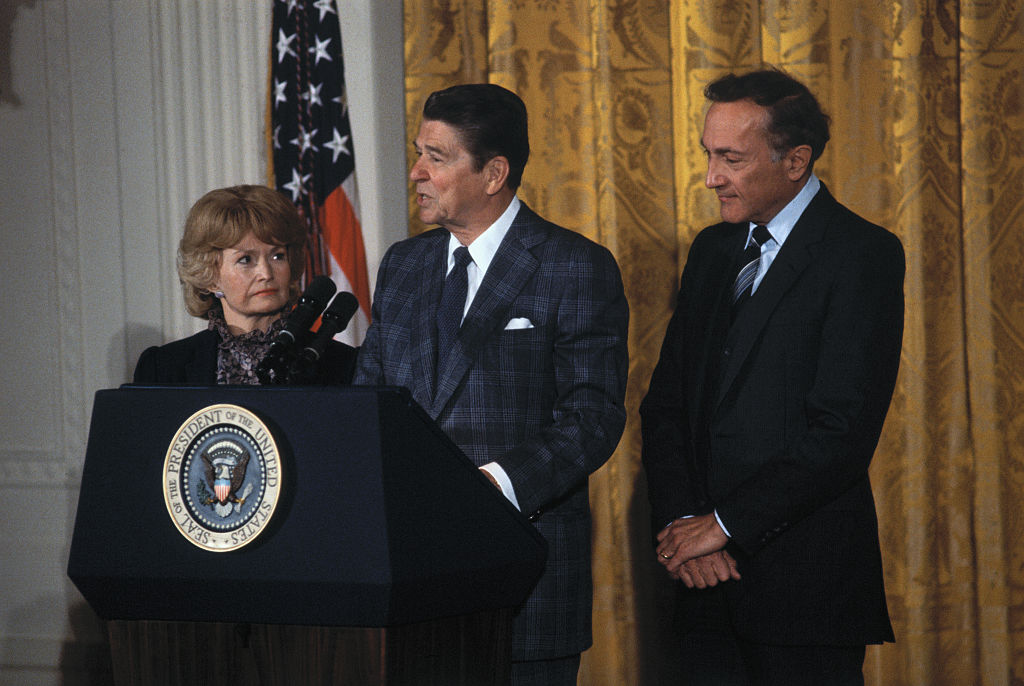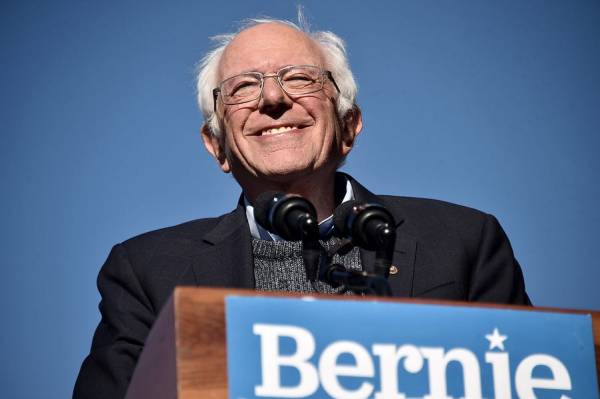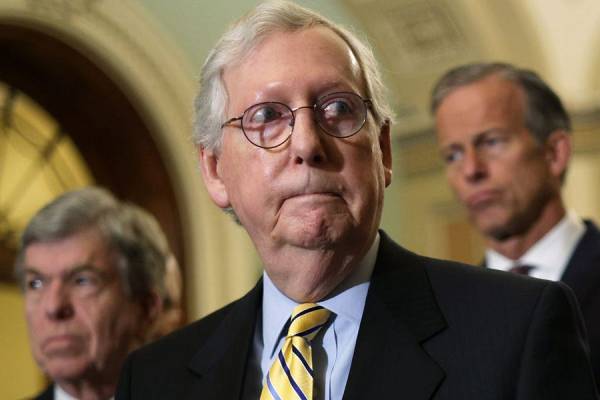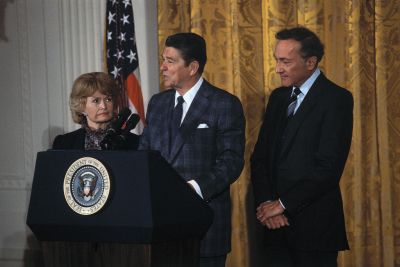Margaret Heckler is not a name many Americans would recognize today, which is a shame. Political heroes are scant. Politicians who prioritize bipartisan collaboration rather than power and prestige have disappeared. And politicians who have broad appeal to Republicans, Democrats, independents, feminists, immigrants, veterans, Christians, and minorities are seemingly nonexistent.
Heckler defies all of our modern expectations for political leaders—similar to how she defied the political boundaries of her own day. As a lawyer and mother of three children, Heckler ran for office in 1966 at the age of 35 without the support of the Republican establishment and unseated Joseph W. Martin, a long-time incumbent and former Republican speaker of the House. She joined Congress as a Republican representing a largely Democratic district in Massachusetts, and was one of 11 congresswomen in a room of 352 congressmen. After more than a decade in the House, she went on to become secretary of health and human services and then ambassador to Ireland.
Why does Heckler’s name not loom large in our imagination like the other female power figures of her day? Over the course of her career, she secured access to credit for women, federalized hospice care, and commissioned the first report on minority health. She also marched alongside Gloria Steinem and Betty Friedan; was admitted to Harvard Law School a few years before Ruth Bader Ginsburg (but was forced to attend Boston College Law School because of the Harvard dean’s discrimination); and successfully persuaded Ronald Reagan to appoint a woman to the Supreme Court, which he did with Sandra Day O’Connor—the same woman who two years later swore in Heckler as HHS secretary.
There are two reasons, I think, for our apparent cultural amnesia when it comes to Heckler. One is that, for the entirety of Heckler’s time in the House, she was in the minority party. In the 1970s, Heckler was perhaps the fiercest promoter of the Equal Credit Opportunity Act—which secured the ability for women to get credit in their own name—sponsoring one of the many drafts, testifying before Congress, meeting with CEOs of several major banks, and leveraging her position on the House Banking Committee. However, New York Rep. Bella Abzug or Louisiana Rep. Lindy Boggs, both Democrats, are better remembered as the champions of the bill in the House.
But perhaps the more likely reason Heckler has been lost to public memory is because her bipartisan achievements do not neatly fit current political expectations. Her legacy looks paradoxical to us, with her political priorities crisscrossing what we would label as “conservative” or “liberal” stances. She supported her immigrant constituents, pushed veteran advocacy, fought for the Equal Rights Amendment, held nuanced pro-life views, and expanded federal health care research for Alzheimer's disease, minorities, and AIDS victims. Today, would those be the priorities of any establishment Democrat or Republican? Indeed, today, Heckler might be accused of inconsistency or worse—being called a squish or a RINO.
In reality, she was incredibly consistent, but to something much greater than party politics. To understand what drove Heckler, one must look to the deeper side of her faith and personal life. In the recently released first biography of Heckler—written by her daughter-in-law Kimberly Heckler, who I had the honor of assisting—personal stories reveal the making of a devout Catholic, determined, and compassionate public servant. Given away as a child to be raised by a devout elderly woman, Heckler channeled her wounds of abandonment into an impressive career. For Heckler, being “driven by her faith” meant that “her compassionate heart refused to settle for anything less than the most humane and dignified government policies.” The result was a career that prioritized care for those most overlooked in society—a commitment that came at the risk of criticism in the media or the loss of a job.
Heckler pursued policy goals she cared about even when it required her to go against her own party or public opinion. For example, Heckler joined the House Committee on Veterans’ Affairs in her first year of Congress, amid the increasingly unpopular Vietnam War, and went on to sponsor or co-sponsor 107 bills to help veterans receive access to education, housing, and geriatric centers.
Then, when she was secretary of health and human services, she included hospice care as a Medicare benefit—much to the ire of the Reagan administration, which was dead-set on reducing government spending. Even more remarkably, when the AIDS epidemic broke out, Heckler spoke out in the face of the same administration’s silence, declaring it the top health priority in the United States. One of Heckler’s former assistants said she “watched her go to hospitals, meet patients, hug and kiss them, and hold their hands, beg the White House for more resources, spend hours with the NIH researchers, praying for the patients and their families and mourning for those dying.” Heckler succeeded in advancing AIDS awareness and research, but that advocacy was one of several reasons she was eventually pushed out of the position—along with the allegation that she was “too liberal.”
Heckler had wide-ranging, genuine friendships with everyone from former President George H.W. Bush and former Speaker of the House Tip O'Neill to the fierce Rep. Bella Abzug. She also formed what was once considered the most successful bipartisan group in Congress with fellow House member Elizabeth Holtzman (D-NY): the Congresswoman’s Caucus, known today as the Congressional Caucus for Women's Issues or Bipartisan Women’s Caucus.
Nowadays, across-the-aisle friendships and legislative compromises appear like a distant dream. Congress has hemorrhaged moderate leaders in recent years. In 2022, 50 of the most moderate members left the House, and this year, the Senate lost moderates like Sen. Joe Manchin of West Virginia, Sen. Kyrsten Sinema of Arizona, and Sen. Mitt Romney of Utah.* The fatigue of trying to bridge increasing polarization, gerrymandering, or district political drift have outlasted and outwitted those with bipartisan intentions. In the absence of boldly bipartisan leaders today, who should we look to for models of political leadership?
We need to look to the past, to figures like Margaret Heckler. We need courageous leaders who are not afraid to challenge their party’s status quo. And we need more people, as Kimberly Heckler writes about Margaret Heckler, who are “driven by compassion and justice rather than vitriolic party politics.”
Correction, February 22, 2025: Corrected the titles of Sens. Manchin and Sinema.






Please note that we at The Dispatch hold ourselves, our work, and our commenters to a higher standard than other places on the internet. We welcome comments that foster genuine debate or discussion—including comments critical of us or our work—but responses that include ad hominem attacks on fellow Dispatch members or are intended to stoke fear and anger may be moderated.
With your membership, you only have the ability to comment on The Morning Dispatch articles. Consider upgrading to join the conversation everywhere.